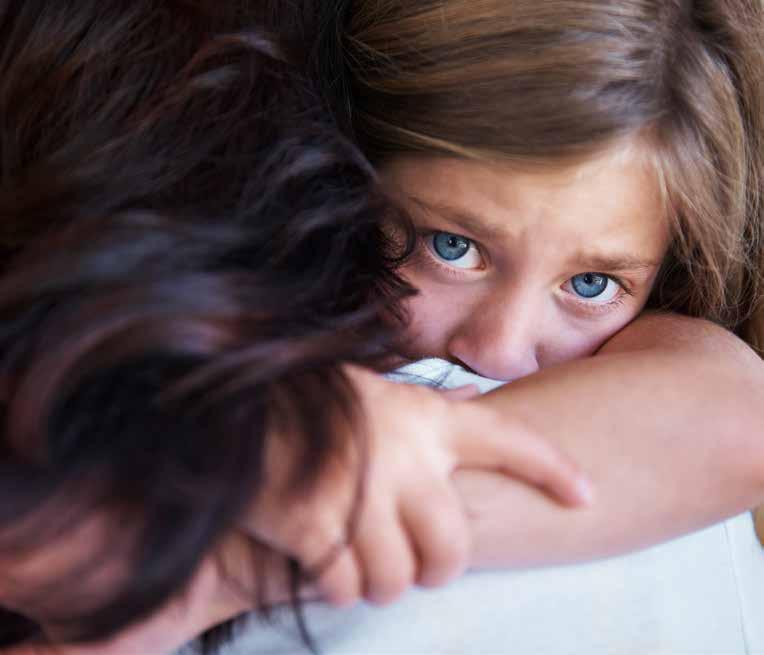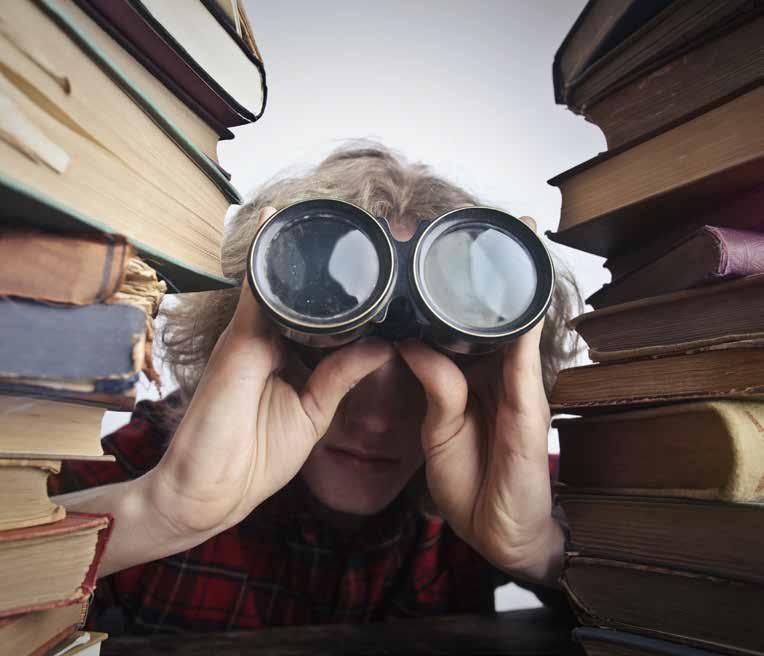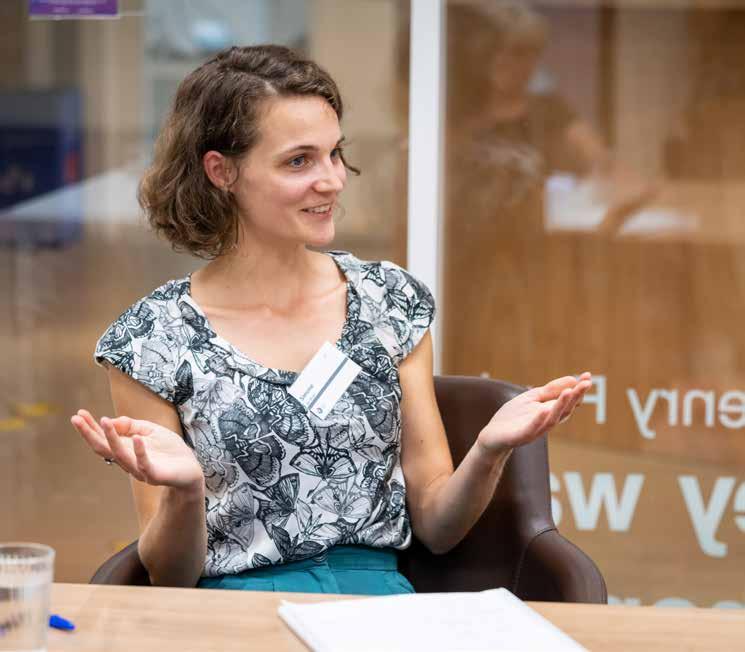
5 minute read
Social and Behavioural Sciences
from About us 2021
Insight into societal change
At the Faculty of Social and Behavioural Sciences, anthropologists, experts on education and child studies, political scientists, psychologists and experts in scientific research are increasing our understanding of current developments in society. With modern research methods these disciplines are developing fast, and interdisciplinary research is helping provide answers to societal issues. In our programmes our students acquire the fundamental knowledge, skills and attitude that are associated with the social and behavioural sciences.

FROM THEORY TO PRACTICE Coronavirus changed the way we organise our work and private life from one day to the next. Economic and cultural life also came to a standstill and had to be reimagined. Social and behavioural scientists proved to be essential advisers here. Working from home can be a challenge with a family in the background, and behavioural change takes time. On the basis of research into vulnerable families, experts on education and child studies advised that a daily schedule can help minimise stress in the family and that seeking support in uncertain times can help. And psychologists explained to politicians, citizens and professionals why it is difficult for people to stick to the new rules. Based on their research, they advised that when communicating new rules it is extremely important to offer some perspective by using positive examples. Researchers prioritised sharing data and accelerating research using ‘open science’ models. Political scientists provided policymakers with a sharp analysis of their working methods and communication style.
THE ROLE OF THEORIES AND MODELS Anthropologists discovered an interesting interaction between experts’ theories and the public. Whereas their research sometimes leads experts to present contradictory theories, the public will use the theory that appeals most to give shape to their daily life. Experts on scientific research gave their fellow researchers five principles to help maintain public confidence in modelling by setting realistic expectations about the predictive value of such models. Conclusions based on models are used to guide policy in the real, uncertain world.
FACULTY WITH PRACTICAL EXPERIENCE The Faculty also gained experience in applying new insights. Master’s students did so, for instance, within the scope of ‘Healthy University’. Under the supervision of their lecturers, they designed and gave workshops about healthy behaviour to the staff and their fellow students.
FACTS AND FIGURES 2020
6,346 students: 4,309 bachelor’s students and 2,037 master’s students
750 staff (542 academic and 208 non-academic staff)
Institutes:
• Centre for Science and Technology Studies • Institute of Cultural Anthropology/Development
Sociology • Institute of Education and Child Studies • Institute of Political Science • Institute of Psychology
25 doctorates
In the top 40 of THE World University Rankings by Subject
BACHELOR’S PROGRAMMES
• BSc & BEd in Teaching • BSc Cultural Anthropology and Development Sociology • BSc International Relations and Organisations • BSc in Education and Child Studies • BSc in Political Science • BSc Psychology
MASTER’S PROGRAMMES
• MSc Cultural Anthropology and Development Sociology • MSc Developmental Psychopathology in Education and
Child Studies (research) • MSc Education and Child Studies • MSc Political Science • MSc Psychology • MSc Psychology (research)
Children and anxiety
Child and developmental psychologist Anke Klein is an expert on anxiety in children. Klein’s research centres on how anxiety is passed on from parents to children. How does anxiety come about, what are the factors that sustain it and how can it be treated? ‘As researchers, we are very keen to find a way of helping children, particularly in these times of the coronavirus pandemic. What’s particularly important is to share reliable information and to offer guidance based on the latest scientific insights.’ Klein talks about children’s and parents’ anxiety and concerns in different media, and gives parents and children advice on how to deal with these issues.
Responsible use of science
The Centre for Science and Technology Studies (CWTS) studies scientific research. It published the Leiden Manifesto in 2013, which sets out ten principles for better research evaluations. Three items were added in 2020. First: five principles for the responsible use of scientific models to maintain society’s confidence in such models. This is a very topical issue since the coronavirus measures are based in part on scientific models. Second: nine ways to safeguard research integrity in daily practice. Third: the advice to make brief summaries of scientific articles publicly available so that anyone can find relevant research.



Learning with the city
At a meeting of Leiden’s Learning with the City partnership (the city, the universities and societal organisations), Simone de Boer, a lecturer in cultural anthropology, explained how together students and societal parties can achieve something new. Her anthropology students were asked to help come up with ideas on how a welfare organisation could attract new multicultural volunteers and clients. The students researched the work process and made the following recommendation: make sure that the mentors are given good cultural sensitivity training. This is an example of how you can put yourself in someone else’s shoes and how you can think and talk from another perspective. ‘New questions and insights arise during such collaborative work, and that benefits both sides,’ said De Boer.
What happens when we engage in caregiving?
What happens in our bodies when we engage in caregiving? Professor Peter Bos, from the Institute of Child and Education Studies, wants to find out what factors have an impact on our caregiving behaviour and the role played by hormones and the brain. He explained his research in Dutch television programme Grote Vragen (Big Questions). And in his book Verbonden (Connected), he explains that our entire biological make-up primes us for caring for one another and forming relationships. Bos hopes his research will contribute to the further integration of psychological and neurobiological insights on human caregiving behaviour and child development.

More information: www.universiteitleiden.nl/en Sign up for our newsletter: www.leidenuniv.nl/en/newsletter
Twitter.com/UniLeidenNews Facebook.com/UniversiteitLeiden Youtube.com/UniversiteitLeiden Instagram.com/universiteitleiden











